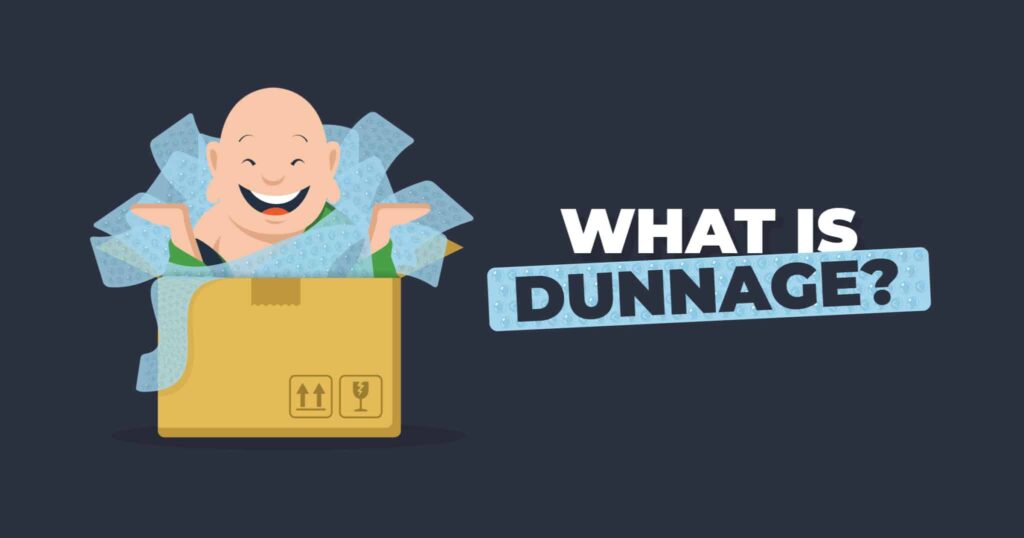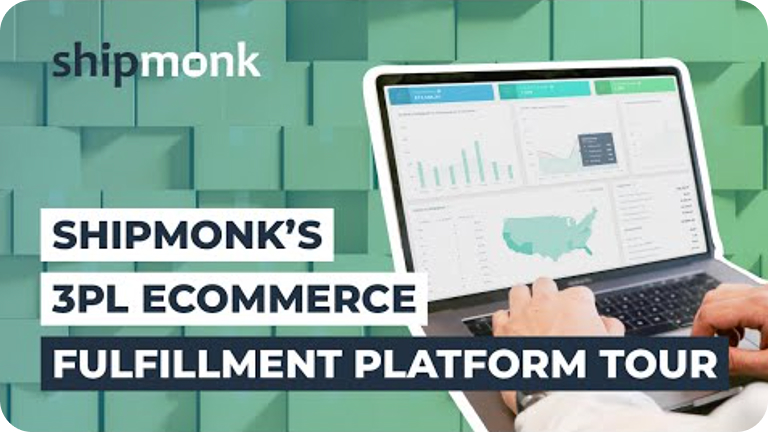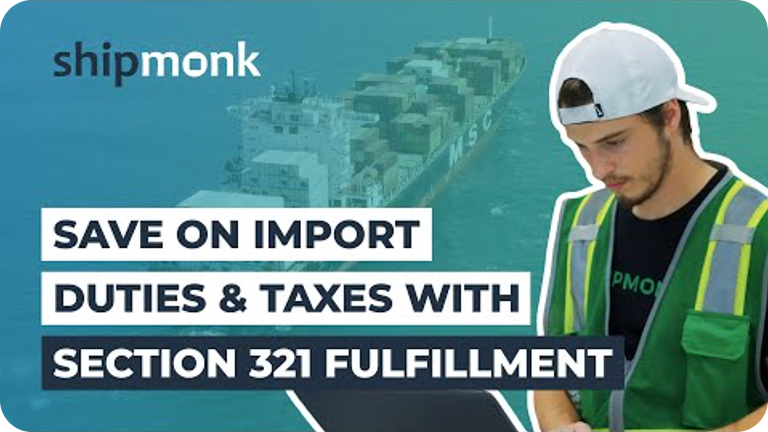Growing up, learning new vocabulary words is a common to-do. Maybe you print them on flashcards; perhaps you write them on a chalkboard repetitively. While these kinds of diction lessons are more associated with schooling as a kid, the fact is that, depending what career you go into as an adult, the jargon journey may only just be beginning.
As an entrepreneur in the eCommerce industry, there are many terms that you have to know—scaling, fulfillment center, EOQ. Today, we’re specifically focusing on dunnage, the different types and when to use them.
What is Dunnage?
Dunnage is any kind of durable padding material that protects goods when they are shipped. Examples most people are familiar with include: packing peanuts, bubble wrap, and crinkle paper. These are just a few examples of dunnage. There are actually MANY kinds of dunnage; the type of dunnage you use, and how much of it you use, is determined by the type of product you’re looking to protect during packing. The more fragile the product, the more dunnage it needs in order to safeguard it through the shipping, handling, and delivery process.
Why Do I Need Dunnage?
Dunnage prevents items from getting damaged or broken. You wouldn’t want your new porcelain tea pot to arrive shattered any more than you’d want your new book to arrive bent or sunglasses to reach you in time for summer but with a cracked lens.
Dunnage secures products for the long journey they have to make from a warehouse or fulfillment center to an end customer. As this journey could involve any number of hands and transport vehicles, and the product could be riding alongside mass amounts of other cargo, it is critical that dunnage works in conjunction with an appropriate box or bag. Example: putting a tiny jewelry chest in a box the size of a flatscreen is not a great plan because you will need A LOT of dunnage, and there is a much higher chance the product will get jostled around, even crushed if other boxes are placed on top of it in transit.
Products need the appropriate size and density of packaging, whether they are traveling with economy, standard, or overnight shipping. In addition to the right kind of outer packaging to support the product and its dunnage, it is important to select a form of dunnage that effectively protects the item(s) being shipped.
What Are the Types of Dunnage?
Lighter Types of Dunnage
Bubble Wrap – One of the most frequently-relied upon kinds of dunnage, completely reusable as long as the bubbles don’t pop. Great for fragile items when paired with other dunnage.
Packing Peanuts – Also frequently used, this form of dunnage protects fragile items, often being shipped in bigger boxes.
Air Pillows – Utilized within packages to keep items from sliding around inside. This type of dunnage can effectively fill in gaps or missing spaces within packages.
Crinkle Paper or Kraft Paper – This recycled paper is an eco-friendly dunnage option. It is typically crinkled and stuffed inside a package. In addition to being better for the environment, this type of dunnage is reusable, extremely effective, and inexpensive.
Blurb – Though less utilized than other kinds of dunnage, blurb is made from rolls or squares that fill empty spaces within a shipping box, thus providing greater cushioning to the goods being shipped.
Foam – This dunnage solution is best for padding fragile or sensitive items, sharp objects, electronics, and medical equipment. If you have things that you don’t want bent either, like envelopes or fancy award certificates for being an awesome entrepreneur, this is also a great type of dunnage.
Corrugated Paper – Though this type of dunnage wasn’t necessarily created for heavy products, its high-tech construction can support a wide array of product weights, provide protection against moisture, and is a sustainable packaging option. It is often used in cardboard box production and is popular in the hardware industry and automobile industry.
Heavier Types of Dunnage
Solid Plastics – If you don’t mind a more expensive kind of dunnage, solid plastics are excellent for shipping high-value products that need intense protection. This type of dunnage is relied upon for industrial and high-value products because the shape of the plastic can be modeled to meet the product’s exact measurements and shape to provide maximum protection.
Wood – This is one of the most heavyweight dunnage options, is generally recyclable, and can be used/reused for a long time. Like air pillows and crinkle paper, this type of dunnage can create barriers between items. Wood is just utilized when much stronger, heavier products are in play. Additionally, wood dunnage is sometimes called upon to partition containers and keep cargo traveling by ship from touching the deck.
Steel – If you have a high-value product that needs shipping and you don’t mind a higher price, steel is one of the most expensive and heavyweight dunnage types. Steel dunnage can be used for protecting your high-value protects and it can keep heavier items from damaging or squashing lighter products being shipped within the same box/container.
Custom Dunnage
Despite there being many kinds of dunnage with many purposes and applications, sometimes eCommerce businesses sell products that aren’t a perfect fit for any of the above listed options. These may include products with:
- Multiple pieces
- Uncommon designs and shapes
- Very fragile elements with specific dimensions
If you are an eCommerce business with goods that fit those descriptions (and you have the budget to accommodate it) you may need to create custom dunnage tailored to your products. In this case, you would need to collaborate with a custom dunnage provider that can design and produce dunnage material personalized to your requirements.
Dunnage Benefits at a Glance:
Durable padding material is a must to protect your products. After all, what good is selling the world’s coolest thingamabob or whatchamajig if it arrives at your customer’s door damaged or broken? You need the right type of dunnage to ensure your goods don’t get hurt and stay put within their boxes or shipping containers. Overall, dunnage offers:
Damage protection that safeguards valuable, fragile, and loose items by keeping them cushioned when their packaging moves from warehouse or fulfillment center to transport vehicles to final destination.
Shock absorption that protects products against the possibility of their packaging being dropped, squished, slid around, and bonked against things.
Moisture protection that is vital to some products like electronics or valuable equipment.
Have You Dunnage Your Shipping Homework?
Regardless of the type of dunnage you need, the plain truth is that all eCommerce businesses need dunnage. Without it, customer satisfaction doesn’t usually go well. So do your homework on the dunnage options that work best for your products (you can absolutely use more than one). Paired with the right outer packaging (boxes, bags, etc.) and a fulfillment center like ShipMonk that handles your goods with care and precision, your inventory will be much safer! Take a 360 degree tour of a ShipMonk facility now to see just how careful we are with our wide variety of inventory.
Feel free to contact us if you’d like a quote. And if you’re not happy with your current fulfillment center, our eCommerce specialists would be glad to walk you through the process of migrating your inventory to a more trustworthy fulfillment center.





